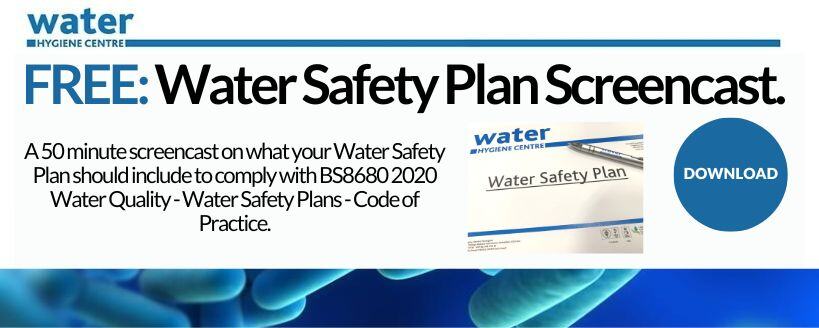I guess the first question is, what is an ‘Authorising Engineer (Water)’? A review of the HSE Approved Code of Practice (ACoP L8) and the supporting HSG 274 Part 2 document shows there is no mention of an Authorising Engineer (Water). Does this mean as it is not mentioned we don’t need one? We still need to establish what one is!
Which guidance details what an Authorising Engineer (Water) is?
Healthcare guidance in the form of ‘HTM04-01 Safe Water in Healthcare Premises’ is a valuable source of information, there are three parts, in Part A there is no mention of an Authorising Engineer (Water). However, in Part B there is a reference to an Authorising Engineer (Water) / Independent Advisor. Further healthcare guidance in the form of HTM 00, does define Authorising Engineer (Water):
The AE will act as an independent professional adviser to the healthcare organisation. The AE should be appointed by the organisation with a brief to provide services in accordance with the relevant HTM. The professional status and role required may vary in accordance with the specialist service being supported.
The AE will act as an assessor and make recommendations for the appointment of Authorised Persons (APs), monitor the performance of the service, and provide an annual audit to the DP. To effectively carry out this role, particularly with regard to audit, the AE should remain independent of the operational structure of the healthcare organisation.
Is an Authorising Engineer (Water) just applicable for healthcare?
Now we’ve found a definition, albeit in healthcare guidance, does this requirement to appoint an Authorising Engineer (Water) apply to non-healthcare organisations when ‘Authorising Engineer (Water)’ is not defined in the L8 or HSG part 2 documents?
These documents don’t refer to an Authorising Engineer (Water) although they do refer to:
‘Require employers to have access to competent help in applying the provision of health and safety law’
The HSE ACOP L8 and HSG274 part 2 documents are guidance documents and not ‘law’. The ‘law’ element comes in the form of compliance with:
- Health and Safety at Work etc Act 1974;
- Control of Substances Hazardous to Health Regulations 2002;
- Management of Health and Safety at Work Regulations 1999.
Paragraph one of the HSE ACoP L8 states:
This Approved Code of Practice (ACoP) gives advice on the requirements of the Health and Safety at Work etc Act 1974 (the HSW Act) and the Control of Substances Hazardous to Health Regulations 2002 (COSHH) and applies to the risk from exposure to legionella bacteria (the causative agent of legionellosis, including Legionnaires’ disease). In particular it gives guidance on sections 2, 3, 4 and 6 of the HSW Act and regulations 6, 7, 8, 9 and 12 of COSHH. The Code also gives guidance on compliance with the relevant parts of the Management of Health and Safety at Work Regulations 1999 (the Management Regulations).
The ‘Management Regulations’ detail the need to appoint a ‘competent person’ to undertake measures to comply with relevant statutory provisions i.e., compliance with the Management Regulations [and associated guidance in the form HSE ACoP L8 and HSG274 documents].
Who is this ‘competent person’…? HSE has defined a ‘competent person’ as:
The HSE goes on to detail that an organisation can get help from a ‘consultant or adviser’ to assist them, for example if the organisation is large, complex or high risk.
We start to have some alignment occurring now and an answer to the title of this blog… in the earlier part of this blog I’d described healthcare guidance referencing an Authorising Engineer (Water) as an ‘independent professional advisor’ and in the statement above the HSE support this in the form of ‘consultant or advisor’.
In essence, where an organisation needs support to comply with the requirements of the ‘law’ and ‘guidance’ (HSE ACoP L8 and HSG274 documents) they can look to appoint external support from a consultant or advisor. The organisation needs to be assured of their competence and suitability such as training, formal qualification, relevant and practical experience in water safety. A definition of this ‘independent advisor’ has been outlined in healthcare guidance (HMT00) as an Authorising Engineer (Water).
Do we need an Authorising Engineer (Water)? If your organisation is large, complex or high risk and there is the need for external support with water safety then serious consideration should be given to appointing an independent advisor in the form of an Authorising Engineer (Water).
Local Authority property portfolios can be complex and diverse. As such, within these there may be assets that require specialist and careful management such as cooling towers, leisure centres with swimming pools/spas, and external water features in public areas.
In order to provide confidence and assurance that such assets are being managed correctly and safely, an independent professional advisor in the form of an Authorising Engineer (Water) gives peace of mind that your organisation, staff and the general public are not exposed to any foreseeable potential risk from the water systems under your control.
Feel free to reach out if you have any questions about this blog or if you would like to consult with one of our experts for further advice on water hygiene.
Editor’s Note: The information provided in this blog is correct at the date of original publication – April 2022. [Revised August 2023]
© Water Hygiene Centre 2022









